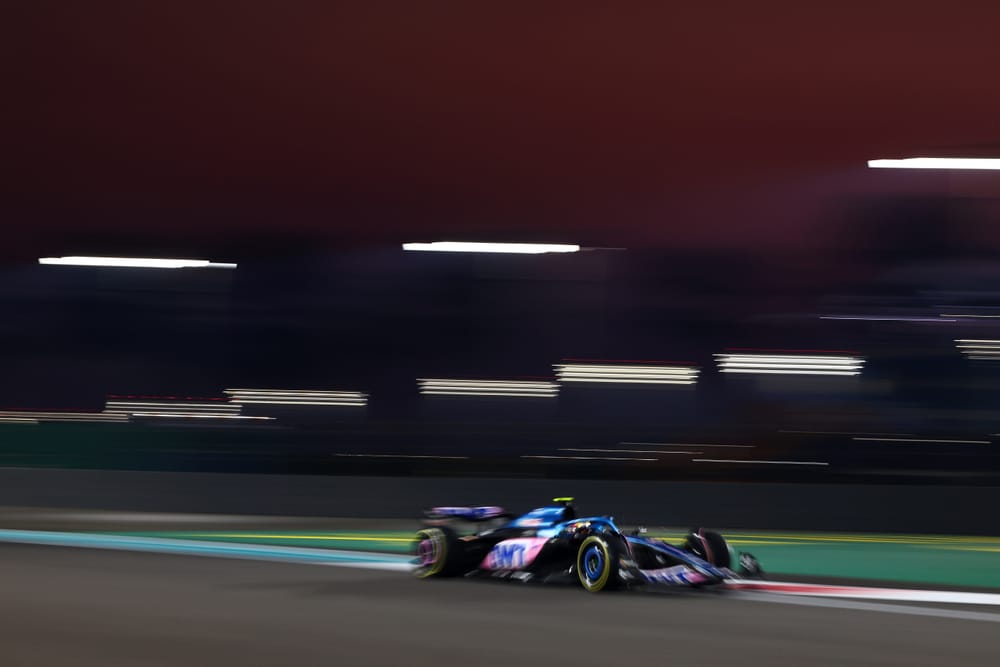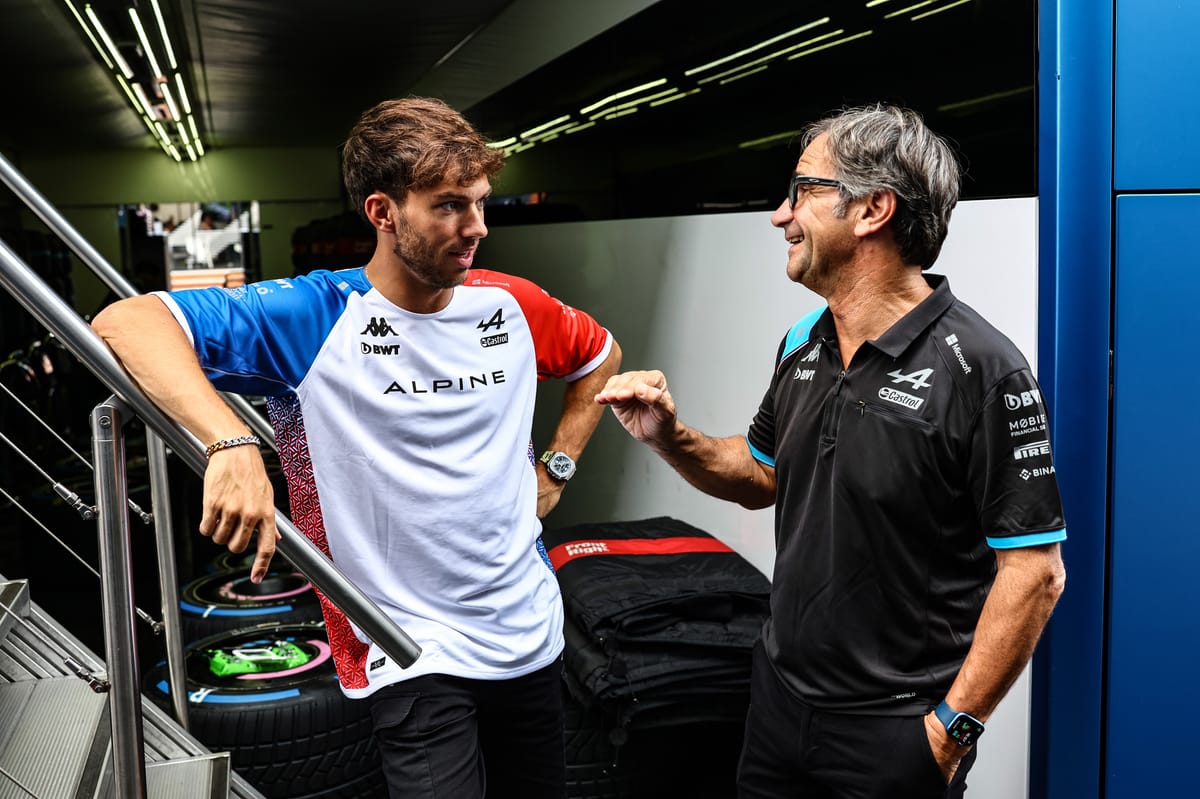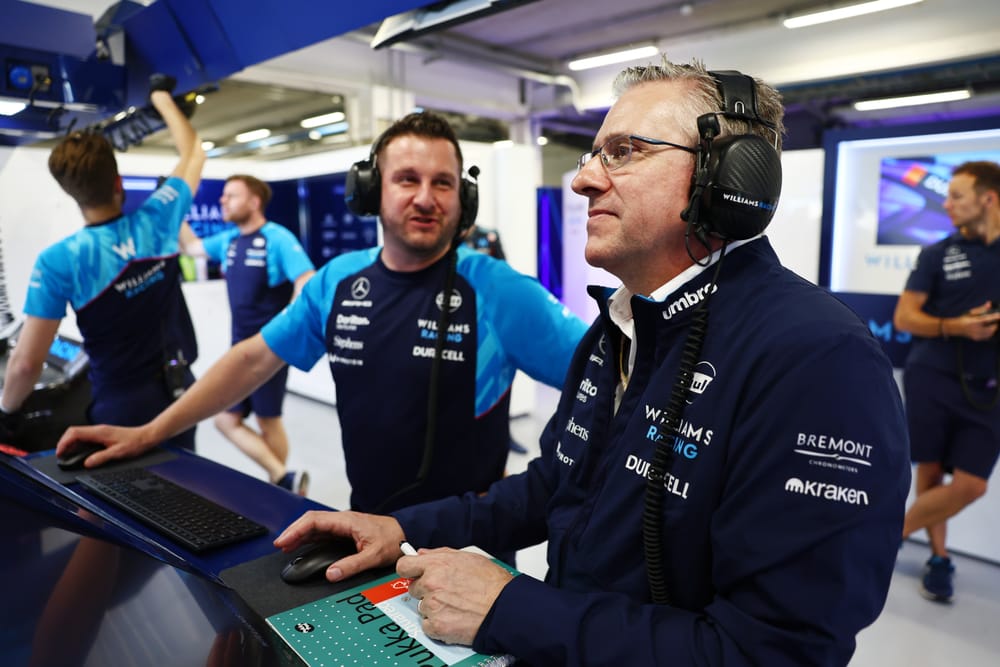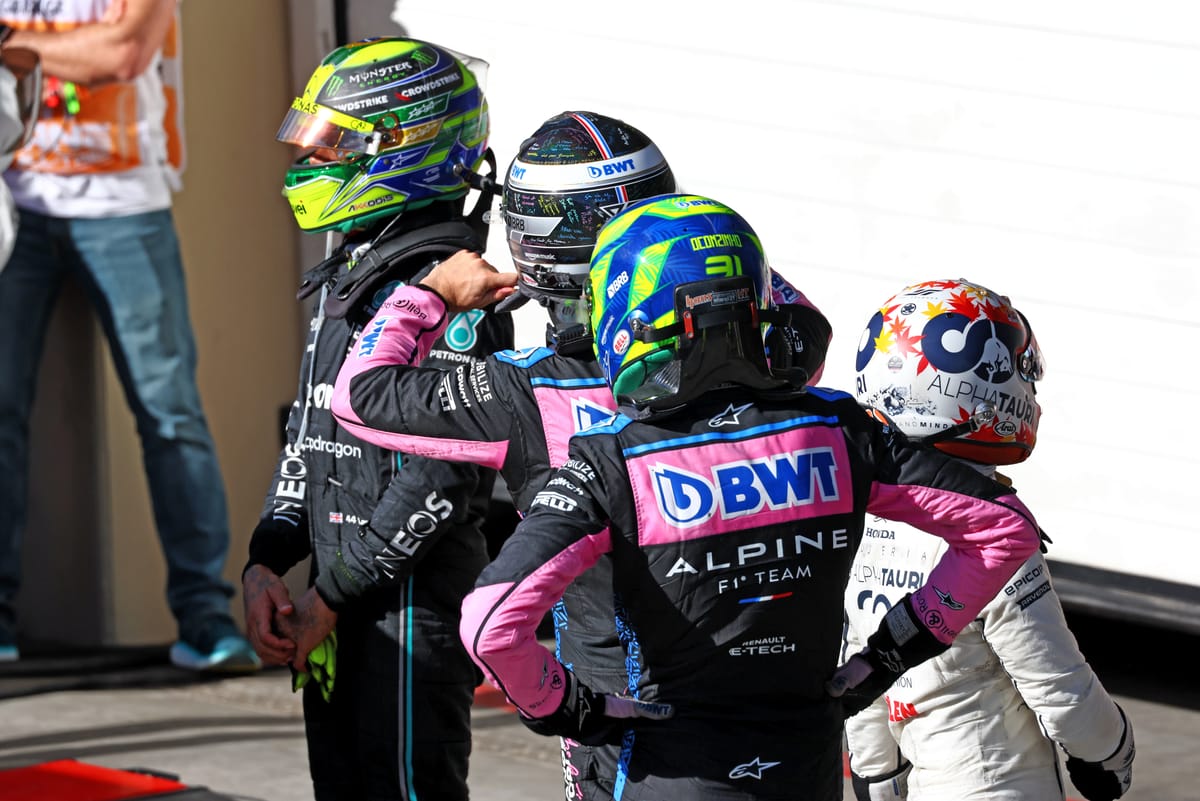Up Next

Little appeared to change for Alpine between the start and the finish of the 2023 Formula 1 season, with its thoroughly-midfield performances garnished with peaks and troughs here and there broadly in line with what the team has produced over the past five years.
Sixth in the championship, in no man’s land 160 points behind the top five and 92 clear of the battle at the back, was symptomatic of a uniquely middling team.
However, off-track there were changes, with the sudden departure of team principal Otmar Szafnauer and sporting director Alan Permane at the start of the August break. Bruno Famin, who took over as interim team principal on top of his role managing the Renault engine facility in Viry, is adamant that there has been progress in terms of mindset that has unleashed untapped potential within the team.
“We are not where we want to be, that’s very clear,” said Famin. “But with the change we made mid-season, we untapped some potential in the people.
“People are much more free to propose things to improve. It’s especially true on the track side, where immediately I saw change in the mindset. We promoted Rob Cherry [from chief mechanic to race team manager] and Jason Milligan [to chief mechanic] and they are doing a very good job in proposing improvement, in making sure their guys also propose things.
"All of this potential was a bit capped until the end of July, and I'm very happy with that [having changed].
“It's true for the garage, but it's true also for the engineering, it's true for the strategy, we are daring [to do] things we were not daring before, we are using more potential of the car, we extract more performance and I'm very happy with that mindset.
“The car is still not the one we would like, but on average we scored more points per race in the second half of the season than in the first. We need to keep pushing to develop this momentum.
“Now that the season is over, I will be able to dedicate more time to the factories. I will be in Enstone more, in Viry more, to transfer and to use this momentum to bring it to the factories to also free the potential.
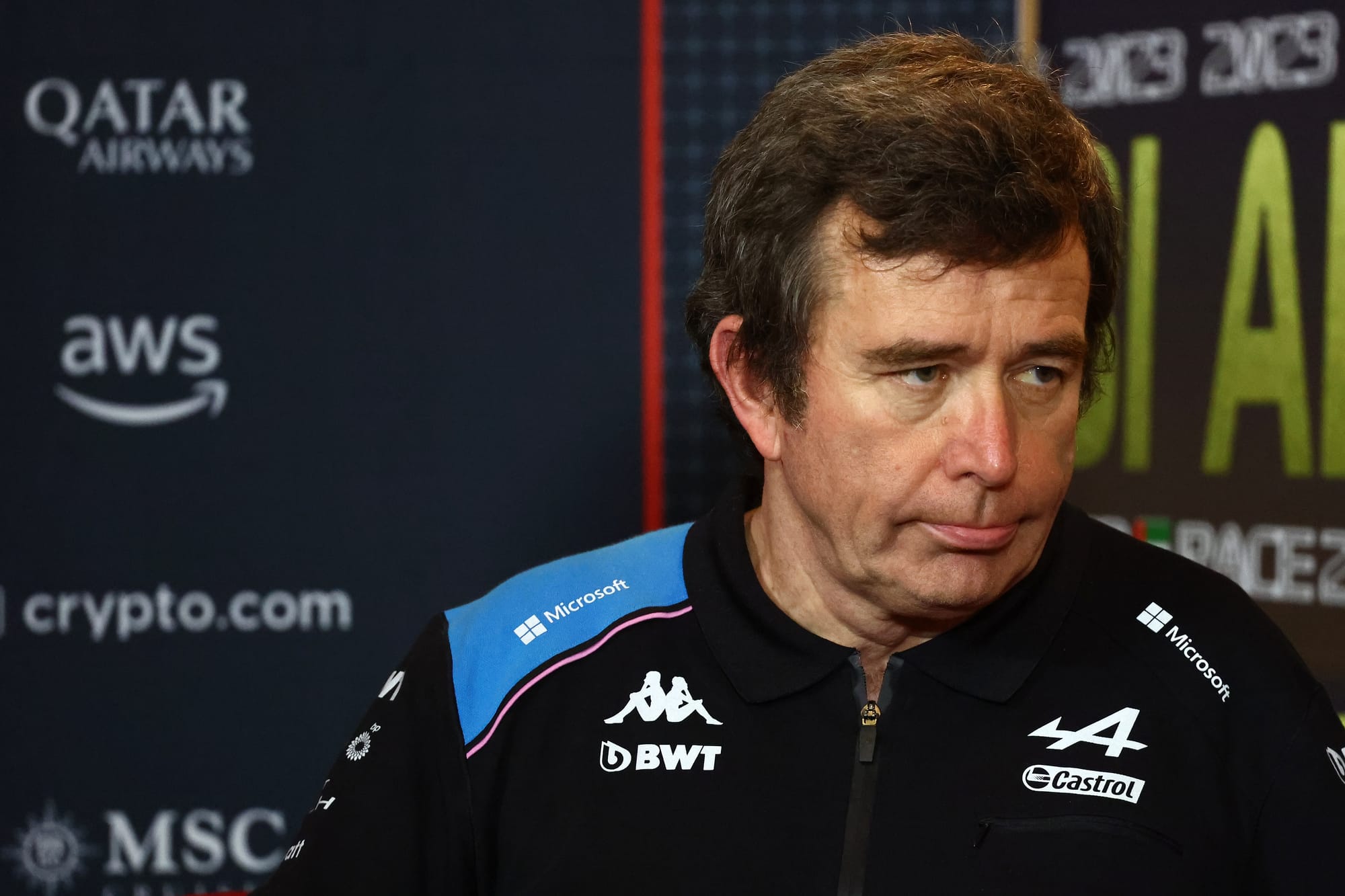
"We have a lot of talent and we need to have them to bring new ideas in developing the car, but also in the way we work.
“The idea is to develop the potential of the full team, to develop the potential of the car and to get a better car and better results.”
Proclamations of extracting more potential via a shift in mindset and change in culture are what pretty much always follows a personnel reshuffle in modern F1 - therefore we can’t simply take Famin’s word for it. So do his claims stand up?
The easiest to appraise are the on-track results. He’s correct to say Alpine’s points yield increased after the changeover, with an average of 4.75 per race weekend in the 12 races before the August break and then 6.3 in the 10 that followed. That’s an increase of 32.6%, albeit still only producing poor numbers for a works team.
The changes to the race team have certainly had an impact. Permane was a well-respected, experienced and very capable figure, but his departure and the subtle shake-up in the established way of doing things appears at least to have had some benefits.
His role is being filled on an interim basis by Julian Rouse, son of four-time British Touring Car champion Andy. Rouse has more than two decades of experience running racing teams across multiple disciplines and has stepped into the role seamlessly.
There’s not been a revolution in the way the team is working trackside, although there do appear to have been improvements in how consistently the team has been able to set up the car well.
There was a feeling in some quarters in the first half of the season that there was too big a disconnect between the way the team at the factory wanted the cars set up going into the races and the race team’s approach. This appears to have improved.
On top of that, there were also plenty of set-up experiments later in the year that have informed 2024 development plans. And when it comes to the 2024 car design, there’s also evidence of a more aggressive mindset with the admission that some of the changes made for the ’23 car, including to the much-vaunted rear suspension design, didn’t go far enough.
What's more, new signing Pierre Gasly hit his stride in the second half of the year and appeared to have the car far better tailored to his liking. Team-mate Ocon had a patchier second half of the season, something he largely put down to bad luck, but overall Alpine's performances were still a little erratic.
Besides that, it generally sounds very positive - but it’s necessary to find more tangible evidence that the aforementioned concepts are manifesting into real progress.
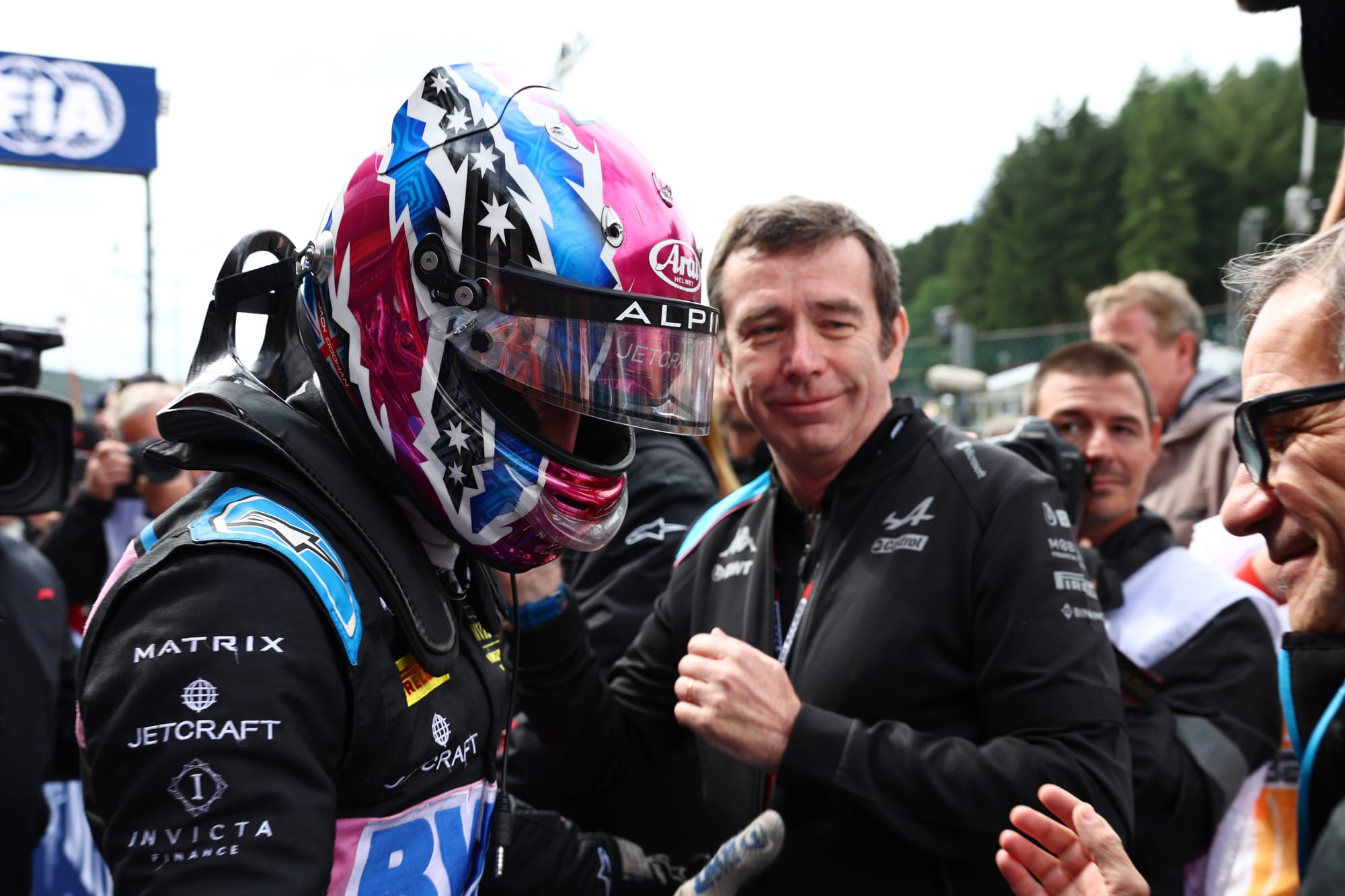
Asked by The Race to produce a specific example, Famin offered a revealing answer related to the Las Vegas Grand Prix weekend that stretched beyond the simple fact of Ocon’s fourth-place finish.
“One very good example where I have been very pleased is the Las Vegas result - and not [specifically] the fourth place, although we were happy to be fifth in qualifying and fourth in the race,” said Famin.
“But [instead] by the fact that Monza was a very bad result. We took the time to analyse what was wrong there and immediately to propose new things, because Vegas was quite similar [low-downforce] and we were at risk if we did not do anything.
“Immediately, the team reacted, proposed some aero evolution, developed it, produced it and we had it on the car, just in time, and it worked.
“Before, it would [just] have been ‘OK we are 17th in Monza’, but no we had a very strong reaction, a very positive reaction and it paid off. Much more [important] than the final result is the attitude, which was very good. It's an example of things that have already changed.
“But of course, it's a small part of the project, it's a small part of what we have to do. Now we have to go anywhere in the company to develop that attitude, that way of working.”
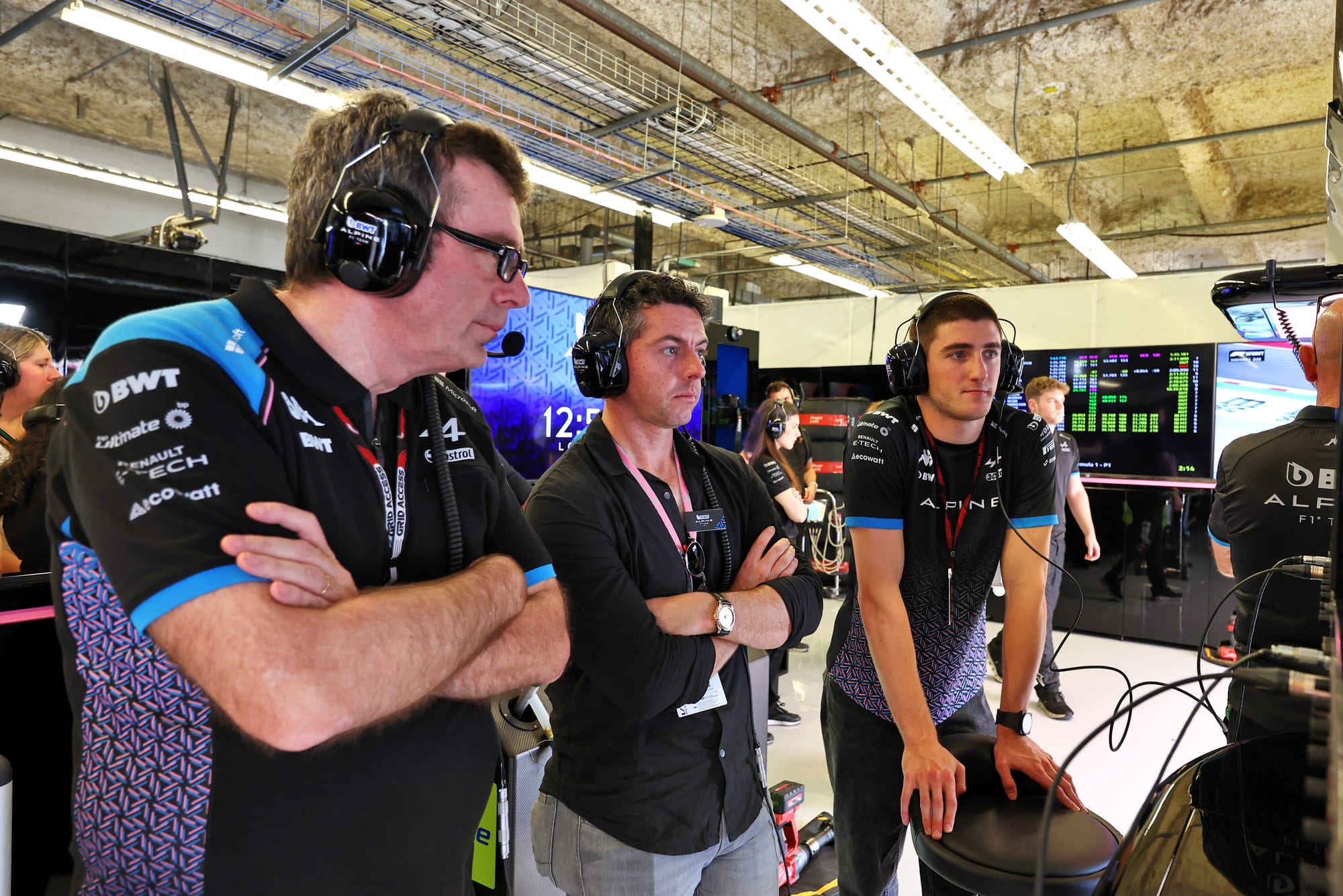
The physical manifestation of that was modifications to the beam wing, front wing and the removal of the rear drum upper flicks.
Famin’s clear implication is that, previously, the team would have shrugged its shoulders, accepted its low-downforce performance as a weakness and lacked the drive to make those changes. And that is a criticism that has been levelled at the team on multiple occasions, notably when it came to the conservative approach to power unit development prior to the big step forward made with the switch to the split-turbo concept for 2022.
So this weakness for the project is also one that had been characterised as improved on several previous occasions. Alpine has had plenty of localised wins over the past five years, but the failure to string these together consistently is at the heart of its failure to become more than a midfielder.
But while Famin’s public communication hadn't been the most convincing to begin with, he does appear to be having some effect. He’s well-regarded for his industriousness and ‘first in, last out’ mentality and has made a tangible effort to understand the strengths and weaknesses throughout the organisation at Enstone in particular.
His interim role also appears to be edging towards becoming more permanent. What was originally characterised as a search for a new team principal when Famin was put into the role now appears to be, at best, on the backburner. He describes it as “not my P1 task” and says that he’s “quite happy with the position and as far as my boss is not telling me to change, I will remain”.
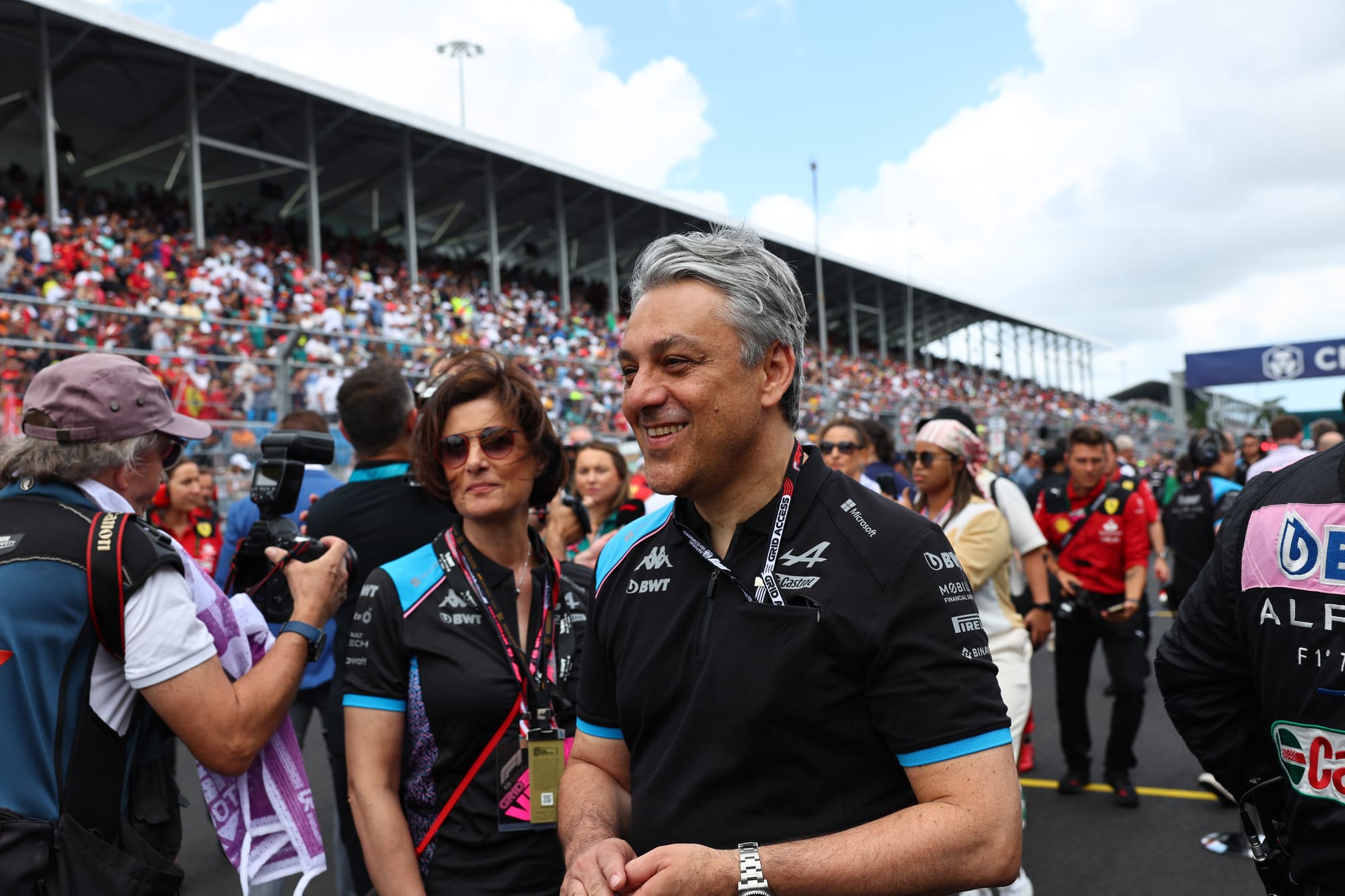
That boss, of course, is ultimately Renault CEO Luca de Meo (above) – although first Famin is answerable to Alpine CEO Philippe Krief, who took over the role from Laurent Rossi in July.
Krief has kept a markedly lower profile than Rossi did when it came to the F1 team, a wise strategy given that Rossi’s public statements became counter-productive.
As for de Meo, he visited Enstone in late September to address the team. Famin says “he was talking to all the Alpine Racing staff, both sides [Viry and Enstone] and reaffirming the project, the ambition and also what we expect in terms of attitude from the guys, saying that we need all the people to be at 100% of their capacities to be able to be competitive”.
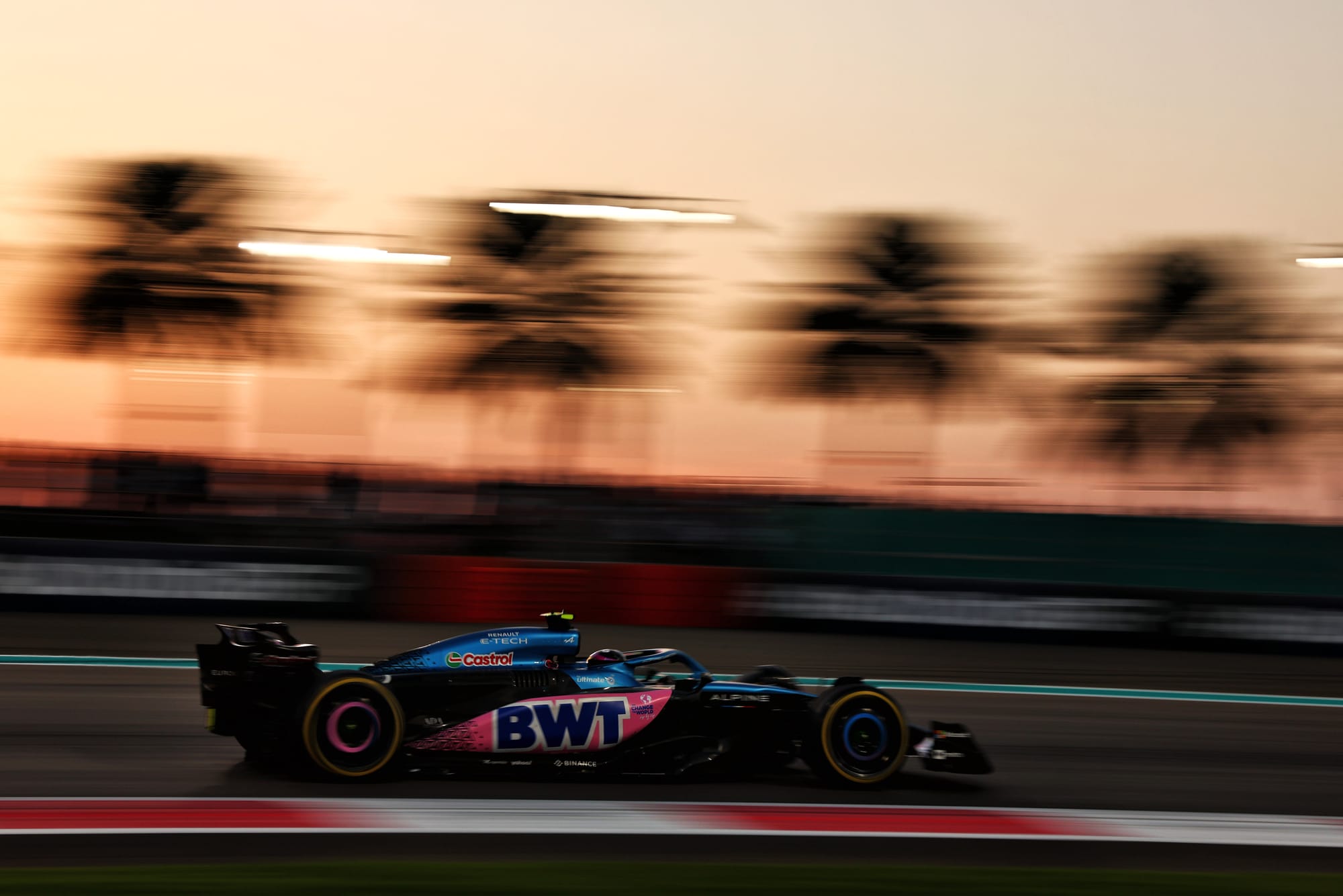
Famin presents de Meo's appearance as a big positive, although opinions differ within the team on that. Given Renault’s long history of sketchy commitment to F1, that’s perhaps no surprise. But the key for the ownership is to let the team on both sides of the English Channel work with minimal interference.
It would be an overstatement to say that what happened in the second half of the season was indicative of the start of a trend that means one of F1’s great underachievers of recent years will get anywhere near fulfilling its potential.
It is fair to say there were some gently positive signs that suggest the team might not be eternally doomed to bounce around between fourth and sixth, as it has for the past seven years.
However, we need far more evidence than that to declare Alpine on the right track, especially given the team’s former chief technical officer Pat Fry recently saying he left because “I didn’t feel there was the enthusiasm or drive to move forward beyond fourth”.
And given it’s clear one problem has been the leadership direction set by Renault Group, which remains the majority owner, the big question is whether that has really been resolved or will remain a weakness that will continue to trip the team up and mean it is always less than the sum of its parts.


